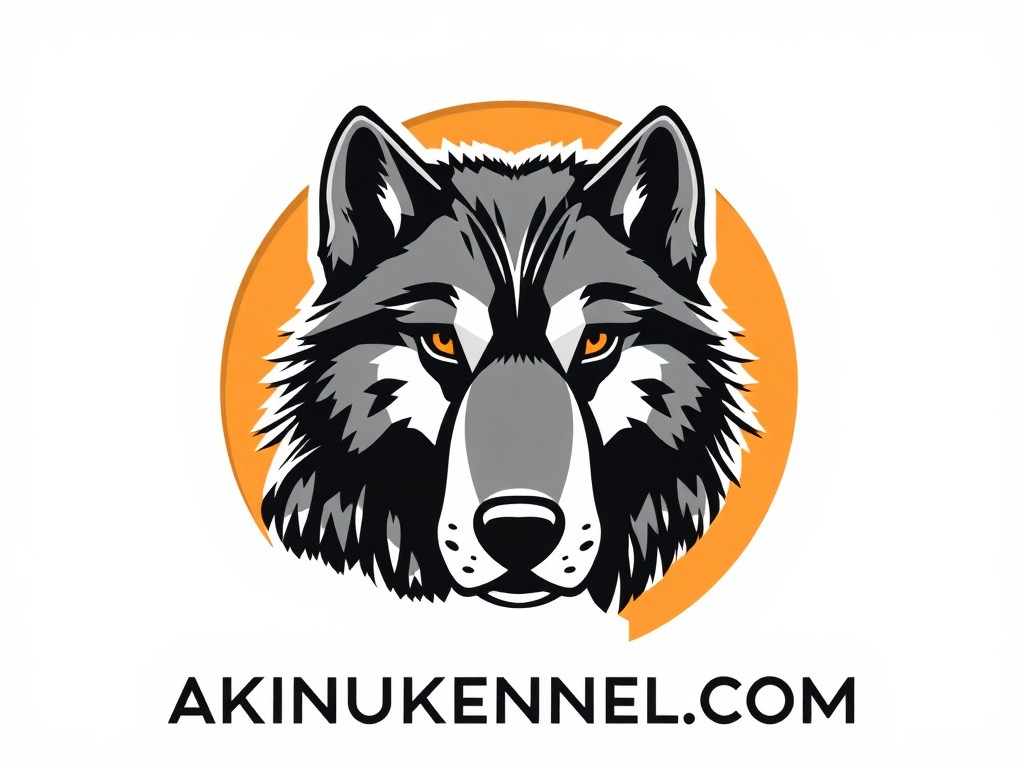Supporting an aging dog with arthritis can feel overwhelming, especially when faced with their changing needs. In the UK, pet owners can implement practical strategies to enhance their senior dog's quality of life. From tailored diets and comfortable living spaces to gentle exercise routines, simple adjustments can make a significant difference. This guide offers essential tips that empower you to provide the support your furry friend deserves, ensuring they remain comfortable and happy in their golden years. Discover how small changes can lead to a more joyful life for your senior companion.
Understanding Arthritis in Senior Dogs
Exploring the challenges and solutions in senior dog health.
Cela peut vous intéresser : Crafting the Perfect Balanced Diet for Rabbits with Digestive Concerns: A Comprehensive Guide
Overview of Arthritis in Dogs
Arthritis in dogs is a common ailment, especially among senior dogs. As dogs age, the cartilage that cushions their joints can wear down, leading to pain and stiffness. This condition is prevalent, affecting a significant portion of the senior dog population. Recognizing the signs early can make a substantial difference in managing senior dog health.
Common Symptoms to Look For
Identifying common symptoms of arthritis in senior dogs is crucial for timely intervention. Symptoms often include:
A découvrir également : Crafting the Perfect Nutritional Plan for Guinea Pigs with Unique Dietary Requirements
- Limping or lameness
- Difficulty rising or sitting
- Reluctance to jump or climb stairs
- Noticeable pain or discomfort when touched
These signs can be subtle, so regular monitoring of your dog's behavior is essential.
Importance of Early Diagnosis and Intervention
Early diagnosis of arthritis in dogs allows for more effective management. Intervening promptly can preserve senior dog health and improve quality of life. Treatments might include medications, dietary changes, or physical therapy.
A relevant quote from a veterinary expert underscores this point: "Proactive care can significantly enhance a dog's mobility and comfort."
Understanding and addressing arthritis in dogs not only alleviates discomfort but also strengthens the bond between you and your furry companion. Prioritize your senior dog's health by staying informed and vigilant.
Home Modifications for Comfort
Enhancing your senior dog's living environment can ease arthritis-related discomfort.
Creating a Comfortable Sleeping Area
Providing a comfortable sleeping area is vital for dogs with arthritis. Orthopedic beds can offer the support needed to alleviate joint pressure. These specialized beds are designed to distribute weight evenly, reducing pain and promoting restful sleep. Consider placing the bed in a quiet, draft-free area to enhance your dog's comfort.
Adding Non-Slip Surfaces
To prevent falls and accidents, adding non-slip surfaces is crucial. Slippery floors can be hazardous for senior dogs with arthritis. Use rugs or mats with non-slip backing in areas where your dog frequently walks. This simple modification can significantly improve your dog's mobility and confidence.
Ensuring Easy Access to Essential Areas
Facilitating easy access to essential areas like food, water, and outdoor spaces is essential. Elevated food and water bowls can reduce strain on your dog's neck and joints. Additionally, ramps or steps can be installed to help your dog reach higher places or navigate stairs safely.
Implementing these home modifications can greatly enhance your dog's quality of life, making daily activities more manageable and comfortable. Prioritize these changes to support your furry friend's well-being.
Dietary Recommendations for Joint Health
Enhancing your senior dog's diet can support joint health and alleviate arthritis symptoms.
Importance of Omega-3 Fatty Acids
A balanced diet rich in omega-3 fatty acids is crucial for joint health in dogs. These essential nutrients help reduce inflammation and improve mobility. Incorporating fish oils or flaxseed oil into your dog's meals can provide these benefits. Always consult with a veterinarian to determine the appropriate dosage for your dog's size and condition.
Recommended Supplements for Joint Support
Supplements can play a significant role in managing arthritis. Consider adding glucosamine and chondroitin to your dog's diet. These supplements support cartilage health and joint lubrication. A veterinary expert notes, "Consistent use of joint supplements can slow cartilage deterioration and improve a dog's quality of life."
Foods to Avoid
Certain foods can exacerbate inflammation, negatively impacting arthritis. Avoid feeding your dog processed foods high in sugars and unhealthy fats. Instead, focus on whole, natural foods that support overall health.
Bulleted List:
- Avoid: Processed foods, sugary treats
- Include: Fish oils, flaxseed oil
- Consider: Glucosamine, chondroitin
By making thoughtful dietary choices, you can significantly enhance your dog's joint health, promoting a more active and comfortable life.
Pain Management Strategies
Exploring effective approaches to alleviate arthritis discomfort in dogs.
Pharmaceutical and Natural Pain Relief Options
Managing pain in dogs with arthritis involves a combination of pharmaceutical and natural approaches. Medications such as NSAIDs are commonly prescribed to reduce inflammation and alleviate pain. Always consult a veterinarian for proper dosage and monitoring. Natural remedies, like turmeric and CBD oil, can also offer relief. However, these should be used under veterinary guidance to ensure safety and efficacy.
Role of Physical Therapy and Alternative Treatments
Physical therapy plays a crucial role in pain management for arthritic dogs. Techniques like hydrotherapy and massage can improve mobility and reduce pain. Alternative treatments, including acupuncture, have shown promise in managing arthritis symptoms. These therapies should be part of a comprehensive management plan tailored to each dog's needs.
Importance of Regular Veterinary Check-Ups
Regular veterinary check-ups are essential for adjusting pain management strategies. These visits allow for monitoring the dog's progress and adjusting medications as necessary. A veterinary expert emphasizes, "Continuous evaluation ensures that your dog's pain relief plan remains effective and safe."
Bulleted List:
- NSAIDs for inflammation
- Turmeric and CBD oil
- Hydrotherapy and acupuncture
Incorporating these strategies can significantly enhance your dog's comfort and quality of life, supporting a more active and pain-free existence.
Mobility Aids and Tools
Enhancing your senior dog's mobility with innovative solutions.
Types of Mobility Aids Available
For senior dogs suffering from arthritis, a variety of mobility aids can significantly enhance their quality of life. Slings, ramps, and harnesses are among the most popular tools. Slings offer support for dogs struggling with stairs or getting up from lying down. Ramps are ideal for helping dogs access vehicles or furniture without jumping, reducing joint stress. Harnesses provide full-body support, allowing you to assist your dog in maintaining balance and stability.
Benefits of Using Joint-Supporting Products
Incorporating joint-supporting products like braces can be beneficial for dogs with arthritis. These products help stabilize joints, providing much-needed support. They can reduce discomfort and improve mobility, allowing your dog to move more freely.
Bulleted List:
- Slings: Assist with stairs
- Ramps: Reduce joint stress
- Harnesses: Enhance stability
- Braces: Stabilize joints
Reviews of Recommended Products Available in the UK
When selecting mobility aids, consider reviews and recommendations of products available in the UK. Expert opinions can guide you in choosing the most effective solutions for your dog's specific needs. Prioritizing these aids can transform your dog's daily experiences, making activities more manageable and enjoyable.
Engaging Activities for Senior Dogs
Encouraging enrichment and activity for dogs with arthritis.
Low-Impact Exercises for Arthritis
Low-impact exercises are essential for maintaining mobility in senior dogs with arthritis. Activities such as gentle walks, swimming, and controlled play sessions help keep joints active without causing strain. These exercises can be tailored to your dog's comfort level, ensuring they remain enjoyable and beneficial. Always monitor your dog's response to ensure they are not overexerting themselves.
Indoor Activities to Stimulate Mental Health
Engaging your senior dog in indoor activities can provide mental stimulation and enrichment. Puzzle toys and scent games are excellent options to keep your dog mentally active. These activities not only entertain but also enhance cognitive function, which is crucial for overall well-being. Consider rotating toys to maintain your dog's interest and challenge them in new ways.
Importance of Socialization and Activity
Socialization remains vital even for senior dogs. Interaction with other dogs or people can boost their mood and encourage active participation in daily routines. Regular socialization opportunities, such as supervised playdates or visits to dog-friendly environments, can help maintain their social skills and emotional health.
Bulleted List:
- Gentle walks for joint health
- Puzzle toys for mental stimulation
- Supervised playdates for socialization
Incorporating these activities into your senior dog's routine can significantly improve their quality of life, keeping them both physically and mentally engaged.
Emotional Support for Dogs and Owners
Exploring the emotional aspects of caring for senior dogs with arthritis.
Recognizing Signs of Stress in Senior Dogs
Understanding the emotional needs of your senior dog is crucial. Signs of stress in dogs can include changes in appetite, increased vocalization, and withdrawal from social interactions. Recognizing these signs early can help you provide the necessary emotional support. A stressed dog may also exhibit restlessness or changes in sleeping patterns, indicating discomfort or anxiety.
Strategies for Providing Emotional Comfort and Security
Creating a stable environment is key to offering emotional comfort. Consistent routines and familiar surroundings can help soothe anxiety. Consider incorporating calming aids, such as pheromone diffusers or soft music, to enhance your dog's sense of security. Emotional support can also be provided through gentle touch and reassurance, reinforcing the strong dog-owner bond.
Importance of Owner Self-Care While Caring for a Senior Dog
Caring for a senior dog can be emotionally demanding. It's vital to prioritize your own mental health to maintain the capacity to care for your pet effectively. Engage in activities that rejuvenate you, such as exercise or hobbies. Remember, a well-balanced owner is better equipped to provide emotional support and maintain a healthy dog-owner bond.
Bulleted List:
- Recognize stress signs
- Maintain consistent routines
- Prioritize owner self-care
Implementing these strategies can enhance both your dog's and your own well-being, fostering a nurturing environment.
Veterinary Care and Professional Support
Ensuring comprehensive care for senior dogs with arthritis.
Importance of Regular Vet Visits
Regular veterinary care is essential for managing arthritis in senior dogs. Consistent check-ups allow dog health professionals to monitor the progression of the disease and adjust treatment plans accordingly. Early detection of changes in your dog's condition can lead to more effective interventions.
Discussing Treatment Options
Consulting with a veterinarian provides access to a range of arthritis management strategies tailored to your dog's needs. Dog health professionals can recommend appropriate medications, dietary adjustments, or physical therapy options. Engaging in open discussions with your vet ensures that your dog's pain management is both safe and effective.
Bulleted List:
- Regular check-ups
- Tailored treatment plans
- Open communication with vet
Local UK Resources
In the UK, numerous resources support veterinary care for dogs with arthritis. Local support groups and specialized clinics offer additional guidance and community support. These resources can be invaluable for owners seeking comprehensive arthritis management solutions. Engaging with local networks can provide both practical advice and emotional support.
Incorporating these elements into your dog's care routine can significantly enhance their quality of life, ensuring they receive the best possible veterinary care and support.
Local Resources and Products in the UK
Discovering arthritis-friendly solutions for senior dogs.
UK-Based Companies Offering Arthritis-Friendly Dog Products
For dog owners seeking arthritis-friendly solutions, several UK-based companies provide specialized products. These include orthopedic beds, joint supplements, and mobility aids. Companies like Pet Remedy, Lily's Kitchen, and Ancol focus on enhancing senior dog comfort and mobility. Their offerings are designed to support joint health, providing relief and improving quality of life for arthritic dogs.
Community Resources for Dog Owners
Engaging with local support groups and forums can be invaluable for dog owners managing arthritis in senior dogs. Organizations such as The Senior Dog Project UK and Dog Owners Support Network offer platforms for sharing experiences and advice. These communities provide emotional support and practical tips, fostering a sense of belonging among dog owners facing similar challenges.
Recommendations for Local Veterinarians Specializing in Senior Dog Care
Finding a veterinarian who specializes in senior dog care is crucial for effective arthritis management. In the UK, clinics like Medivet and Vets4Pets are renowned for their expertise in treating arthritis. These professionals offer tailored treatment plans, ensuring optimal care for your pet's unique needs. Regular visits to these experts can significantly enhance your dog's well-being and comfort.
Bulleted List:
- Pet Remedy: Orthopedic beds
- Lily's Kitchen: Joint supplements
- Ancol: Mobility aids
- Medivet: Senior care specialists
These resources and products are essential tools in managing arthritis, ensuring your senior dog remains active and comfortable.













